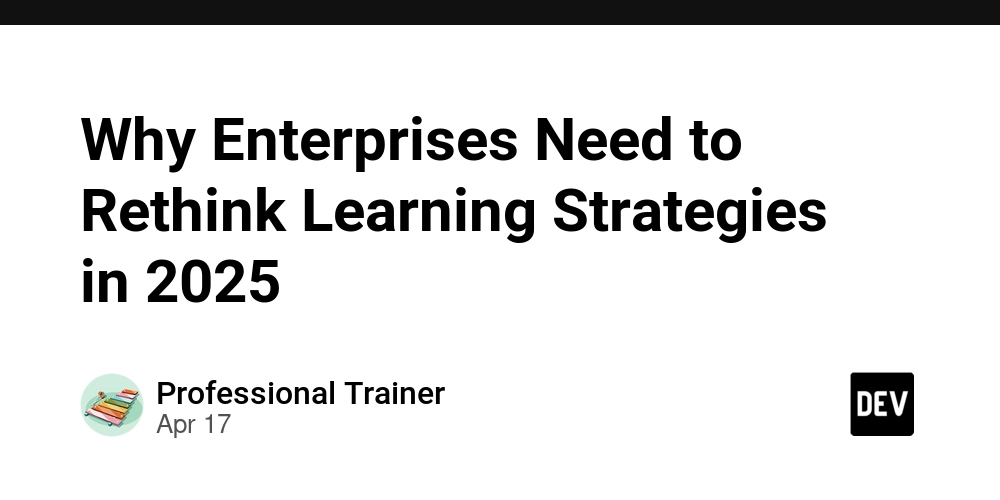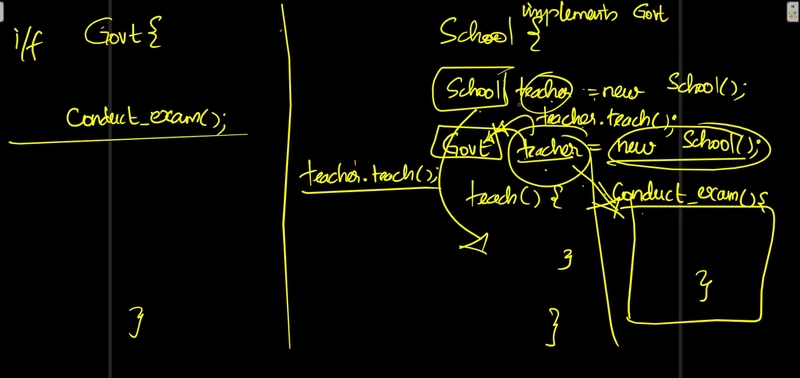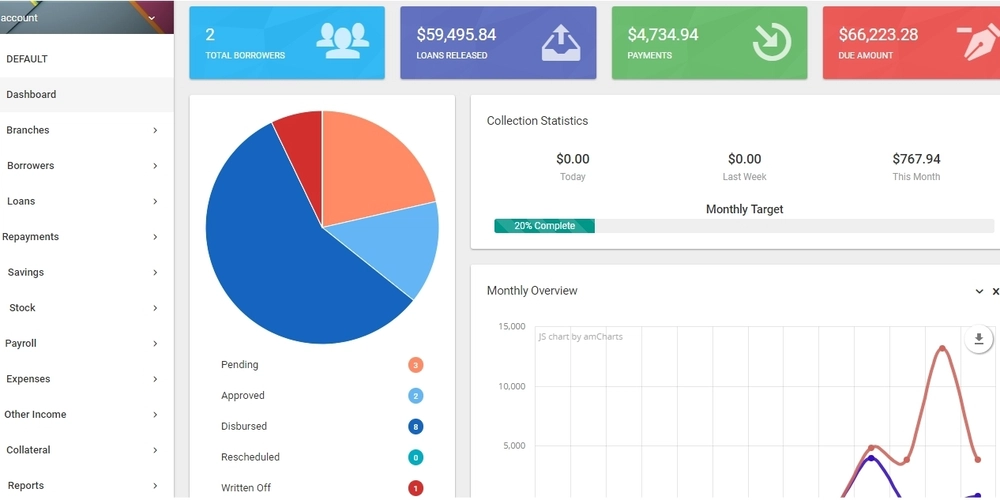Why Enterprises Need to Rethink Learning Strategies in 2025
By 2025, the business world is changing at breakneck speed. With AI revolutionizing industries, remote and hybrid work being the norm, and employee expectations changing at warp speed, organizations can no longer afford to bank on traditional models of training. To remain competitive and responsive, organizations need to radically transform their Enterprise Learning Strategy and Corporate Learning Strategy—not modify them. Learning is now a strategic differentiator, and newer tools such as an LMS are no longer discretionary—they're necessary. The Corporate Learning Playbook Is Outdated Learning strategies were based on inflexible frameworks for years—annual training schedules, off-the-shelf courses, and isolated departments. But business isn't waiting for annual refreshes anymore. Business today happens in real-time and you’re learning environment needs to keep pace. Learners Want Flexibility, Not Formality Today's workers expect learning to be as fluid as their workspaces. Extended classroom training and fixed e-learning modules are becoming obsolete. Workers demand just-in-time learning, bite-sized content, and mobile access—abilities a next-gen LMS must provide. Learning Should Be Business-Driven Every hour of learning time should be building directly towards business results. No matter if it's enhancing customer service, stimulating innovation, or facilitating digital transformation, your Corporate Learning Strategy ought to align learning objectives with strategic initiatives. Real-Time Data Is the New Learning Currency Information is no longer an indulgence—it's a necessity. Businesses require insights into what individuals are being taught, the effect on performance, and areas of deficiency. A smart LMS can act as the cognitive center of your Enterprise Learning Strategy, providing instant feedback through real-time analytics that inform wiser decisions. The Global Workforce Requires Localization and Diversity If your talent pool is global, your learning has to be as well. That involves multilingual materials, cultural awareness, and accessible design. A genuinely contemporary approach honors local requirements while having a single learning vision. Reskilling at Speed Is Now Mission-Critical With jobs changing rapidly—particularly because of automation—up skilling and reskilling are not a choice. Businesses need to create scalable learning initiatives that give workers the skills of the future, today. Slow rollouts and static content won't work. From Programs to Personalized Journeys One-size-fits-all no longer applies. Pioneering companies are moving from program-based training to personalized learning paths. That's where AI-driven LMS platforms excel—providing tailored paths on the basis of skills, job roles, interests, and performance metrics. LMS Is the Digital Nerve Center of Learning A Learning Management System is no longer meant to be a content repository. It needs to be a strategic engine—aligned with performance systems, facilitating real-time learning, monitoring progress, and providing personalization at scale. Performance and Learning Must Be Connected What if your LMS could tell you not just what someone learned—but how it enhanced their performance? Savvy modern enterprise methods link learning metrics to performance outcomes, providing you with ROI that's more than just a number. Social Learning Is the Hidden Power Play Peer-to-peer learning, mentoring, discussion forums, and shared spaces are too often underutilized. But they're highly effective engagement and retention tools. A contemporary Enterprise Learning Strategy seamlessly integrates formal and informal learning. Security, Compliance, and Scalability Matter More Than Ever As content libraries expand and learners access training from across the globe, LMS platforms need to be scalable, secure, and compliant. Your Corporate Learning Strategy needs to include data privacy, audit-readiness, and localization at scale. Create a Learning Culture—Not Just a Learning Program Technology won't repair a broken culture. Leadership should lead learning as a value, rather than an assignment. The most effective organizations see learning as a core component of how they do business—not an afterthought. Learning Agility = Business Agility Companies that design agile learning systems are more likely to shift when disrupted—be it a new market trend, economic change, or tech innovation. Learning agility is business-critical today. Rebuild the Foundation, Refurbish More Than the Façade In 2025, companies that approach learning as a strategic growth driver will surpass those holding on to old models. Reinventing your Enterprise Learning Strategy and Corporate Learning Strategy is about creating a foundation that's tech-enabled, data-driven, learner-centric, and closely aligned with your business objectives. Your LMS is not merely a support tool—it's the driver of transformation

By 2025, the business world is changing at breakneck speed. With AI revolutionizing industries, remote and hybrid work being the norm, and employee expectations changing at warp speed, organizations can no longer afford to bank on traditional models of training. To remain competitive and responsive, organizations need to radically transform their Enterprise Learning Strategy and Corporate Learning Strategy—not modify them. Learning is now a strategic differentiator, and newer tools such as an LMS are no longer discretionary—they're necessary.
The Corporate Learning Playbook Is Outdated
Learning strategies were based on inflexible frameworks for years—annual training schedules, off-the-shelf courses, and isolated departments. But business isn't waiting for annual refreshes anymore. Business today happens in real-time and you’re learning environment needs to keep pace.
Learners Want Flexibility, Not Formality
Today's workers expect learning to be as fluid as their workspaces. Extended classroom training and fixed e-learning modules are becoming obsolete. Workers demand just-in-time learning, bite-sized content, and mobile access—abilities a next-gen LMS must provide.
Learning Should Be Business-Driven
Every hour of learning time should be building directly towards business results. No matter if it's enhancing customer service, stimulating innovation, or facilitating digital transformation, your Corporate Learning Strategy ought to align learning objectives with strategic initiatives.
Real-Time Data Is the New Learning Currency
Information is no longer an indulgence—it's a necessity. Businesses require insights into what individuals are being taught, the effect on performance, and areas of deficiency. A smart LMS can act as the cognitive center of your Enterprise Learning Strategy, providing instant feedback through real-time analytics that inform wiser decisions.
The Global Workforce Requires Localization and Diversity
If your talent pool is global, your learning has to be as well. That involves multilingual materials, cultural awareness, and accessible design. A genuinely contemporary approach honors local requirements while having a single learning vision.
Reskilling at Speed Is Now Mission-Critical
With jobs changing rapidly—particularly because of automation—up skilling and reskilling are not a choice. Businesses need to create scalable learning initiatives that give workers the skills of the future, today. Slow rollouts and static content won't work.
From Programs to Personalized Journeys
One-size-fits-all no longer applies. Pioneering companies are moving from program-based training to personalized learning paths. That's where AI-driven LMS platforms excel—providing tailored paths on the basis of skills, job roles, interests, and performance metrics.
LMS Is the Digital Nerve Center of Learning
A Learning Management System is no longer meant to be a content repository. It needs to be a strategic engine—aligned with performance systems, facilitating real-time learning, monitoring progress, and providing personalization at scale.
Performance and Learning Must Be Connected
What if your LMS could tell you not just what someone learned—but how it enhanced their performance? Savvy modern enterprise methods link learning metrics to performance outcomes, providing you with ROI that's more than just a number.
Social Learning Is the Hidden Power Play
Peer-to-peer learning, mentoring, discussion forums, and shared spaces are too often underutilized. But they're highly effective engagement and retention tools. A contemporary Enterprise Learning Strategy seamlessly integrates formal and informal learning.
Security, Compliance, and Scalability Matter More Than Ever
As content libraries expand and learners access training from across the globe, LMS platforms need to be scalable, secure, and compliant. Your Corporate Learning Strategy needs to include data privacy, audit-readiness, and localization at scale.
Create a Learning Culture—Not Just a Learning Program
Technology won't repair a broken culture. Leadership should lead learning as a value, rather than an assignment. The most effective organizations see learning as a core component of how they do business—not an afterthought.
Learning Agility = Business Agility
Companies that design agile learning systems are more likely to shift when disrupted—be it a new market trend, economic change, or tech innovation. Learning agility is business-critical today.
Rebuild the Foundation, Refurbish More Than the Façade
In 2025, companies that approach learning as a strategic growth driver will surpass those holding on to old models. Reinventing your Enterprise Learning Strategy and Corporate Learning Strategy is about creating a foundation that's tech-enabled, data-driven, learner-centric, and closely aligned with your business objectives. Your LMS is not merely a support tool—it's the driver of transformation. Don't accept superficial changes. Rethink, rebuild, and lead with learning.









































































































































































![[The AI Show Episode 144]: ChatGPT’s New Memory, Shopify CEO’s Leaked “AI First” Memo, Google Cloud Next Releases, o3 and o4-mini Coming Soon & Llama 4’s Rocky Launch](https://www.marketingaiinstitute.com/hubfs/ep%20144%20cover.png)




























































































































![[DEALS] The All-in-One Microsoft Office Pro 2019 for Windows: Lifetime License + Windows 11 Pro Bundle (89% off) & Other Deals Up To 98% Off](https://www.javacodegeeks.com/wp-content/uploads/2012/12/jcg-logo.jpg)



























![Is this too much for a modular monolith system? [closed]](https://i.sstatic.net/pYL1nsfg.png)






















































































































_Andreas_Prott_Alamy.jpg?width=1280&auto=webp&quality=80&disable=upscale#)
































































































![What features do you get with Gemini Advanced? [April 2025]](https://i0.wp.com/9to5google.com/wp-content/uploads/sites/4/2024/02/gemini-advanced-cover.jpg?resize=1200%2C628&quality=82&strip=all&ssl=1)













![Apple Shares Official Trailer for 'Long Way Home' Starring Ewan McGregor and Charley Boorman [Video]](https://www.iclarified.com/images/news/97069/97069/97069-640.jpg)
![Apple Watch Series 10 Back On Sale for $299! [Lowest Price Ever]](https://www.iclarified.com/images/news/96657/96657/96657-640.jpg)
![EU Postpones Apple App Store Fines Amid Tariff Negotiations [Report]](https://www.iclarified.com/images/news/97068/97068/97068-640.jpg)
![Apple Slips to Fifth in China's Smartphone Market with 9% Decline [Report]](https://www.iclarified.com/images/news/97065/97065/97065-640.jpg)




































































































































